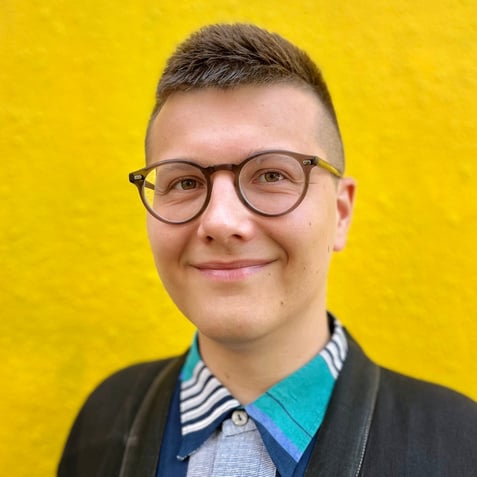Review of CRADLE’s International Symposium Interactive Panel Session – by Rebecca Awdry
2 November 2022
CRADLE International Symposium 2022 – “Challenging Cheating”
This year’s Symposium considered the challenges that cheating poses to education, to questioning the very idea of cheating, and beyond. As well as the intensive closed portion of the event, two interactive public events were held as pivotal highlights of the Symposium program. These include a Keynote Presentation and a Panel Session. In this post Rebecca Awdry, CRADLE PhD candidate and symposium delegate, provides her reflections on the Panel Session and the controversial and big issues arising out of the discussions surrounding cheating.
Interactive Panel Session
The session convened virtually on 18 October to discuss Challenging Cheating and our panellists were:
 Professor Bruce MacFarlane, The Education University of Hong Kong,
Professor Bruce MacFarlane, The Education University of Hong Kong, - Professor Jeannie Paterson, University of Melbourne,
- Dr Vicky Nagy, University of Tasmania, and
- CRADLE’s Professor Phill Dawson.
Informed by the closed part of the Symposium, this highly interactive session unpacked suppositions and shifting positions of different ways of considering cheating and whether or not all behaviours which might have historically been viewed in certain ways as cheating, would or should still be considered as cheating.
Bruce posed the argument that there were many behaviours which could be considered to be micro-cheating or where students were merely surface learning, rather than engaging in misconduct under the more traditional view. This view can also be confounded by academics who don’t see anything wrong in taking short-cuts in academic writing and publication work, underpinned by a belief based on power and hierarchy, rather than ethics.
Furthermore virtue ethics can provide a more appropriate context for understanding and framing academic integrity and that we need to understand why decisions and actions are being taken, which may or may not have a moral basis. We educators, he stated, have a responsibility to engage with students about the purpose of assignments and the value that students can get out of this, whilst understanding that surface learning is a common method students employ to get through their studies.
In responding to how we need to think about how educators have been thinking about cheating, Vicky argued that criminology can provide a very useful disciplinary basis for understanding why people deviate from the norm. She argued that the use of surveillance may lead students to feel shame or stigma and feel mistrusted, resulting in negative relationships with institutions or resort to cheating anyway. Feeling that there is no trust students may feel that they have nothing to lose by cheating anyway. Phill added that students are not active participants in the surveillance culture and there is a misconception that they may understand the actual data being gathered on them.
Vicky asked us to think about how we are using academic misconduct committees and to reconsider whether these can be used for more educative purposes than been too reactive. She agreed with Bruce that students do not all want to deepen their knowledge in any or every area of study, but rather may prefer to surface learn and get a breadth of basic information in many areas.
The discourse around academic integrity and the protection of Australian values she warns, may come across as a paternalistic approach, where international students are seen to be the ones not easily meeting Australian values of fairness. Vicky argued that as educators we need to be more open to be vulnerable and learn new methods and ways of doing things, and encourage students to go and learn in different ways, applying their own knowledge, perspectives and philosophy of learning. Does higher education create a system where cheating arises because students think they need to have all the answers?
Similar to Bruce’s standpoint on virtue ethics, Jeannie discussed the way that ethics and virtue ethics can give higher education knowledge on what other institutions in society model around ethics and whether different perspectives can help us to reduce moral judgements within education. These judgements are placed on the groups of students who cheat, and imply that higher education is associated with higher values. What then, she asked, should the role be of higher education to teach the virtues relating to these values?
Jeannie discussed her research regarding surveillance cultures in universities and the need for the understanding of privacy in a digital age to continue to change. Jeannie argued that universities have always monitored students, but that monitoring now is qualitatively different to what it used to be like due to the technologies available to higher education. The use of proctoring and other forms of surveillance have profoundly altered the relationships between students, universities and technology. Universities need to scrutinise this relationship and their roles within it more, and think about to what end it is actually used.
You can view the panel session on our YouTube channel or our Blog Symposium page.

Don’t forget, CRADLE Seminar Series #9: ‘Assessment and learning for the long term: What do graduates say?‘ with Dr Jan McArthur, a Senior Lecturer in Education and Social Justice at the Department of Educational Research, Lancaster University, UK will be held on Monday 14 November 2022 at 2pm (AEST). Be part of the event by registering here!













